| Listing 1 - 10 of 26 | << page >> |
Sort by
|
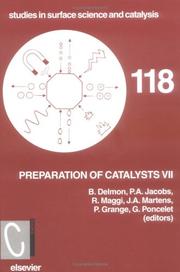
ISBN: 9780444500311 0444500316 9780080539454 0080539459 Year: 1998 Publisher: Oxford Elsevier
Abstract | Keywords | Export | Availability | Bookmark
 Loading...
Loading...Choose an application
- Reference Manager
- EndNote
- RefWorks (Direct export to RefWorks)
The proceedings of the VIIth International Symposium on the
Book
Year: 1987 Publisher: Amsterdam Oxford Tokyo Elsevier
Abstract | Keywords | Export | Availability | Bookmark
 Loading...
Loading...Choose an application
- Reference Manager
- EndNote
- RefWorks (Direct export to RefWorks)
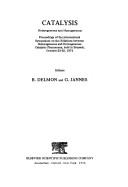
ISBN: 0444413464 9780444413468 Year: 1975 Publisher: Amsterdam : Elsevier,
Abstract | Keywords | Export | Availability | Bookmark
 Loading...
Loading...Choose an application
- Reference Manager
- EndNote
- RefWorks (Direct export to RefWorks)
Catalysis --- Catalyse --- Congresses --- Congrès --- -Activation (Chemistry) --- Chemistry, Physical and theoretical --- Surface chemistry --- 541.128 <063> --- Catalysis. Acceleration and retardation of reactions by catalysts. Autocatalysis. Spontaneous combustion--Congressen --- Congresses. --- -Catalysis. Acceleration and retardation of reactions by catalysts. Autocatalysis. Spontaneous combustion--Congressen --- -Congresses --- 541.128 <063> Catalysis. Acceleration and retardation of reactions by catalysts. Autocatalysis. Spontaneous combustion--Congressen --- -541.128 <063> Catalysis. Acceleration and retardation of reactions by catalysts. Autocatalysis. Spontaneous combustion--Congressen --- Congrès --- Metals. --- Nuclear magnetic resonance. --- Catalysis - Congresses --- Chemisorption --- Coordination compounds --- Esr (electron spin resonance) --- Reaction (chemistry) --- Zeolites

ISBN: 1851666931 9401136807 9781851666935 Year: 1991 Publisher: London Elsevier
Abstract | Keywords | Export | Availability | Bookmark
 Loading...
Loading...Choose an application
- Reference Manager
- EndNote
- RefWorks (Direct export to RefWorks)
Ceramic materials. --- NEW MATERIALS --- MEMBRANES --- Ceramics. --- Ceramic technology --- Industrial ceramics --- Keramics --- Building materials --- Chemistry, Technical --- Clay --- Ceramic industries --- Ceramics --- Mines and mineral resources --- Materials --- Monograph

ISBN: 0444894667 9786611778859 1281778850 0080887139 9780444894663 9780080887135 9781281778857 6611778853 Year: 1992 Publisher: Amsterdam New York Elsevier
Abstract | Keywords | Export | Availability | Bookmark
 Loading...
Loading...Choose an application
- Reference Manager
- EndNote
- RefWorks (Direct export to RefWorks)
This volume contains invited papers and communications presented at the Third European Workshop Meeting on Selective Oxidation by Heterogeneous Catalysis. The purpose of the meeting was to present recent results and to discuss new aspects of partial oxidation by heterogeneous catalysis. The following topics were discussed: Novel processes for obtaining new fine chemicals by catalytic partial oxidation; selective oxidation and oxidative dehydrogenation of alkanes; new catalysts and advances in preparation methods of oxidation catalysts; new phenomena in partial oxidation and new aspects of surf

ISBN: 9780444894663 0444894667 9780080887135 0080887139 1281778850 9781281778857 9786611778859 6611778853 Year: 1992 Publisher: New York Elsevier
Abstract | Keywords | Export | Availability | Bookmark
 Loading...
Loading...Choose an application
- Reference Manager
- EndNote
- RefWorks (Direct export to RefWorks)
This volume contains invited papers and communications presented at the Third European Workshop Meeting on Selective Oxidation by Heterogeneous Catalysis. The purpose of the meeting was to present recent results and to discuss new aspects of partial oxidation by heterogeneous catalysis. The following topics were discussed: Novel processes for obtaining new fine chemicals by catalytic partial oxidation; selective oxidation and oxidative dehydrogenation of alkanes; new catalysts and advances in preparation methods of oxidation catalysts; new phenomena in partial oxidation and new aspects of surf
Book
Year: 1987 Publisher: Amsterdam Oxford New York Tokyo Elsevier
Abstract | Keywords | Export | Availability | Bookmark
 Loading...
Loading...Choose an application
- Reference Manager
- EndNote
- RefWorks (Direct export to RefWorks)
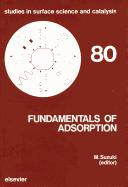
ISBN: 0444419209 0444418016 0080954324 9780444419200 9780444418012 Year: 1980 Volume: v. 6 Publisher: [Place of publication unknown] : Elsevier Science,
Abstract | Keywords | Export | Availability | Bookmark
 Loading...
Loading...Choose an application
- Reference Manager
- EndNote
- RefWorks (Direct export to RefWorks)
Catalyst Deactivation 1980: International Symposium Proceedings
541.128 --- 66.097.7 --- 66.097.8 --- Catalyst poisoning --- -#KVIV --- 66.097.8 Negative catalysis. Inhibition. Inhibitors. Retarders. Reaction stabilizers --- Negative catalysis. Inhibition. Inhibitors. Retarders. Reaction stabilizers --- 541.128 Catalysis. Acceleration and retardation of reactions by catalysts. Autocatalysis. Spontaneous combustion --- Catalysis. Acceleration and retardation of reactions by catalysts. Autocatalysis. Spontaneous combustion --- 66.097.7 Substances for inhibiting or arresting catalysis. Catalyst paralysers --- Substances for inhibiting or arresting catalysis. Catalyst paralysers --- Catalyst deactivation --- Catalysts --- Catalytic poisoning --- Poisoning of catalysts --- Congresses --- Deactivation --- Adsorption --- Alkenes --- Polymerization --- Porosity --- Zeolites --- Congresses. --- Catalyseurs --- Empoisonnement --- Congrès --- SURFACES --- CATALYSIS --- Monograph --- Surfaces. --- Catalysis. --- Activation (Chemistry) --- Chemistry, Physical and theoretical --- Surface chemistry --- Curved surfaces --- Geometry --- Shapes --- Catalyst poisoning -- Congresses. --- Catalyst. --- Chemical & Materials Engineering --- Engineering & Applied Sciences --- Chemical Engineering --- -Congresses
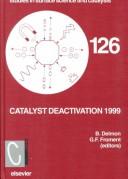
ISBN: 9780444502131 0444502130 Year: 1999 Publisher: Oxford Elsevier
Abstract | Keywords | Export | Availability | Bookmark
 Loading...
Loading...Choose an application
- Reference Manager
- EndNote
- RefWorks (Direct export to RefWorks)
Studies in catalyst deactivation play a major role in the identification of the real catalytic system, in particular, the structure and texture of the solid, which is often in a metastable state, as it is operated in the industrial reactor. These studies also allow the identification of the experimental conditions which preserve this active and selective state. This is crucial for a real understanding of catalysts and catalysis. Another area of catalytic science concerns reactions kinetics, which, if properly determined, are of paramount importance in the elucidation of mechanisms. The behavior of the kinetics during aging and deactivation and an accurate modeling of the evolution of activity and selectivity are essential information for the process performance. These are just two typical examples, but quite generally, the science of catalyst deactivation is going to be more oriented to fundamental issues.
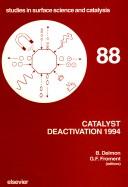
ISBN: 9780444816825 0444816828 9780080887388 0080887384 Year: 1994 Publisher: New York Elsevier
Abstract | Keywords | Export | Availability | Bookmark
 Loading...
Loading...Choose an application
- Reference Manager
- EndNote
- RefWorks (Direct export to RefWorks)
Catalyst Deactivation 1994 was an expansion of earlier, highly successful symposia. The objective of the symposium was to promote a scientific approach of the phenomenon of catalyst deactivation which will contribute to the development of catalysts which are less subject to structural transformations and more resistant to poisons and coke formation. These aspects are dealt with in 12 plenary lectures, 48 oral presentations and 35 poster papers, which were critically selected from an impressive response from some 30 countries. Both fundamental and applied aspects were covered. The deactivation of catalysts in important industrial processes like fluid bed catalytic cracking hydrotreatment, hydrodesulfurization, catalytic reforming, hydrodenitrogenation, steam reforming, hydrodemetallization, hydrocracking, Fischer-Tropsch synthesis, propane dehydrogenation, phthalic anhydride synthesis received considerable attention. Mechanisms of poisoning, sintering and coking were further investigated and modelled and new experimental techniques for the characterization and the quantification of deactivation were also introduced.
| Listing 1 - 10 of 26 | << page >> |
Sort by
|

 Search
Search Feedback
Feedback About UniCat
About UniCat  Help
Help News
News